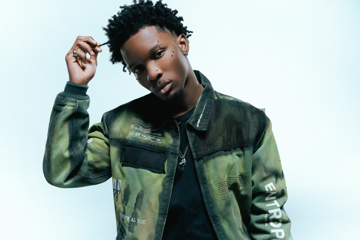Spotify Announces New Measures To Strengthen AI Protections For Artists And Producers
"We envision a future where artists and producers are in control of how or if they incorporate AI into their creative processes."

Spotify (Supplied)
Streaming giant Spotify have said they're taking the impact of AI on artists and producers seriously, announcing a new batch of measures to ensure that creators are protected from the potential misuse of the technology.
For anyone who has been paying attention to the rise of generative AI in recent months and years, it's been easy to see the negative impact it can have upon the music industry. While Crowded House were recently forced to address fake claims made in regard to Tim Finn's bedroom performance, it was last year predicted that AI could cause a 24% drop in revenue for creators by 2028.
Just last month, the Australian Independent Record Labels Association (AIR) outlined its opposition to proposed exceptions to the Copyright Act, which could ultimately mean that AI is training itself without restriction upon copyrighted materials from artists.
Now, Spotify has stepped into the ring, announcing that they will be introducing a number of protections for creators, including a new spam filtering system, improved enforcement of impersonation violations, and AI disclosures for music with industry-standard credits.
"Music has always been shaped by technology," the company said in a statement. "From multitrack tape and synthesizers to digital audio workstations and Auto-Tune, every generation of artists and producers has used new tools to push sound and storytelling forward.
"However the pace of recent advances in generative AI technology has felt quick and at times unsettling, especially for creatives. At its best, AI is unlocking incredible new ways for artists to create music and for listeners to discover it.
Don't miss a beat with our FREE daily newsletter
"At its worst, AI can be used by bad actors and content farms to confuse or deceive listeners, push 'slop' into the ecosystem, and interfere with authentic artists working to build their careers," it continued. "That kind of harmful AI content degrades the user experience for listeners and often attempts to divert royalties to bad actors."
Spotify explained that this attitude toward spam is not a new one, with the past decade seeing them fight the rise of invasive technology that can have a negative impact upon the creative and listening process. In fact, they also noted that the past 12 months alone have more than 75 million "spammy tracks" removed from the service – the equivalent of roughly two years' worth of annual uploads to the service.
"The future of the music industry is being written, and we believe that aggressively protecting against the worst parts of Gen AI is essential to enabling its potential for artists and producers," the company continued.
"We envision a future where artists and producers are in control of how or if they incorporate AI into their creative processes.
"As always, we leave those creative decisions to artists themselves, while continuing our work to protect them against spam, impersonation, and deception, and providing listeners with greater transparency about the music they hear."
So, what are these new protections, and what exactly do they do?
The first of these are stronger rules relating to the issue of impersonation. While Spotify notes they've "always had a policy against deceptive content," AI tools have been resulting in the easier generation of "vocal deepfakes" from established artists.
To combat this, they've introduced a new impersonation policy that clarifies how they handle claims about AI voice clones. Ultimately, it boils down to the fact that vocal impersonation is only allowed if the impersonated artist has given explicit consent.
Additionally, Spotify have also pointed out they're "testing new prevention tactics" in order to combat impersonation tactics where uploaders "fraudulently deliver music (AI-generated or otherwise) to another artist’s profile across streaming services."
Working with artist distributors, the service is working to employ new prevention tactics, while also investing more resources into their content mismatch process, including a reduction in review wait time, and allowing mismatches to be reported even before an official release.
The second of these new additions include a music spam filter. While Spotify recognises continued rises in total music payouts, it also recognises that increased payouts have enticed "bad actors" to partake in tactics such as "mass uploads, duplicates, SEO hacks, artificially short track abuse, and other forms of slop."
Effectively, to help combat large volumes of AI-generated music intended to scam listeners for greater payouts, their new spam filter will be used to "identify uploaders and tracks engaging in these tactics, tag them, and stop recommending them."
Though no specifics on this front have been outlined as to how this will be employed, Spotify have noted it will be rolled out "conservatively over the coming months" so as to ensure that innocent uploaders are not incorrectly flagged by the filter.
The last of these introductions include a new industry standard disclosure for music which features AI. Noting that the current system ignores the spectrum-based utilisation of AI and simply distills it into a binary system of whether a creation does or does not contain AI, this new industry standard will give greater information as how and where AI has played a role in the creative process.
Developing the new standard through DDEX, the information will be submitted through labels, distributors, and music partners, and will be displayed across the Spotify app. This means that both artists and rightholders are able to disclose whether AI was used in terms of vocal generation, instrumentation, or post-production.
This change is about strengthening trust across the platform," Spotify explains. "It’s not about punishing artists who use AI responsibly or down ranking tracks for disclosing information about how they were made."
The service does note that this new industry standard is an "important first step" which they expect to see evolve in the future.
"While AI is changing how some music is made, our priorities are constant," Spotify concludes. "We're investing in tools to protect artist identity, enhance the platform, and provide listeners with more transparency.
"We support artists' freedom to use AI creatively, while actively combating its misuse by content farms and bad actors. Spotify does not create or own music; this is a platform for licensed music where royalties are paid based on listener engagement, and all music is treated equally, regardless of the tools used to make it.
"These updates are the latest in a series of changes we’re making to support a more trustworthy music ecosystem for artists, for rightsholders, and for listeners," they add. "We’ll keep them coming as the tech evolves, so stay tuned."
The full details of Spotify's newly-announced protections for artists and producers can be found via the platform's Newsroom.







